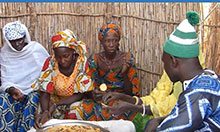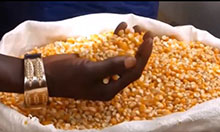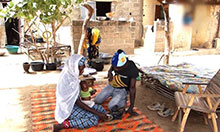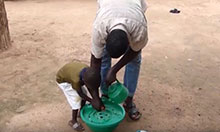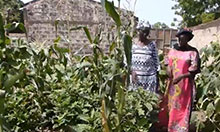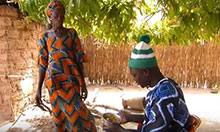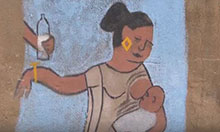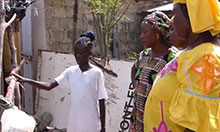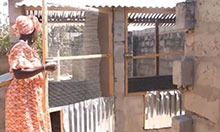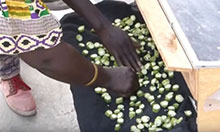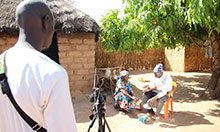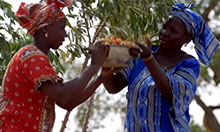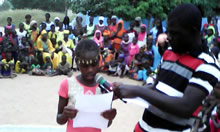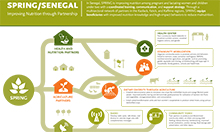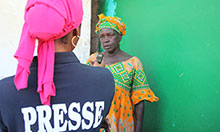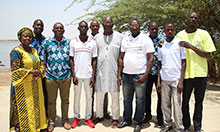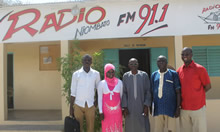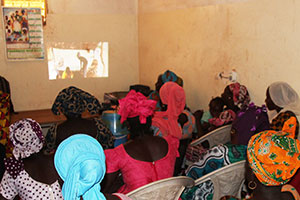
As part of its strategy to improve the nutritional status of pregnant and lactating women and children under two years of age, SPRING/Senegal employs a community video approach to promote best practices in nutrition and hygiene. The community video approach sits within a broader palette of social behavior change communication (SBCC) activities that also includes radio programs and community events to encourage the use of evidence-based nutrition, agriculture, WASH, and gender best practices.
The SPRING community video approach places community members at its center. SPRING facilitates the creation of community-based video production teams made up of members of partner organizations in agriculture and community health that show an interest in developing video production skills. SPRING, in conjunction with international partner Digital Green, trains these video production teams on how to shoot and edit videos, with sessions on pre-production (creating storyboards and scripts); production (filming and working with actors); and post-production (editing and subtitling).
The first of these week-long trainings took place in June 2016, establishing the first two video production teams for the departments of Kaolack, Nioro, and Foundiougne. A third video production team from the department of Koungueul was trained in December 2016. As of January 2017, the video production teams have produced four community videos on home hygiene, handwashing, hygiene when processing peanut butter, and complementary feeding for children 6 to 23 months old. The actors in these community videos are local “stars” who are respected members of the community and are known to demonstrate tnutrition-relatedted behaviors being promoted.
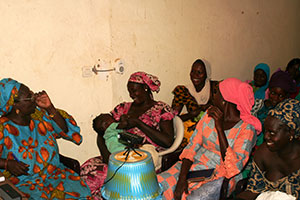
Trained mediators then use the community videos as teaching tools during community gatherings and women’s group meetings. SPRING and Digital Green trained additional members from 12 community-based partner organizations working in agriculture, horticulture, animal husbandry, agro-processing, and health on how to disseminate the videos and facilitate conversations about nutrition in their communities. Some of these partner organizations include l’Association pour le développement de l’agriculture à Kaolack et Kaffrine (ADAK), YAKHANAL, l’Union des producteurs de céréales locales (UGPCL), Fédération des producteurs de maïs (FEPROMAS), Association pour la promotion de femme sénégalaise (APROFES), SYMBIOSE, l’Association senegalaise pour le bien-être familial (ASBEF), le Programme pour le renforcement nutritionnel (PRN), and PLAN.
The trained facilitators use pico projectors to show the videos during community events and women’s group meetings. After each viewing, facilitators lead group discussions on the topics highlighted in the videos to ensure the audience understands and to offer viewers the chance to share concerns, ask questions, and discuss how they can adapt the suggested practices for their households.
SPRING promotes the sustainability of the community video approach in Senegal by ensuring that production teams will be able to independently produce films by the end of the project. In addition to improving nutrition, the multisectoral community video approach contributes to outcomes in business development and income diversification: in 2017, SPRING will also provide the production teams with training in business planning, accounting, and grant writing so that the teams’ video production skills can be used as part of broader enterprise activities.
